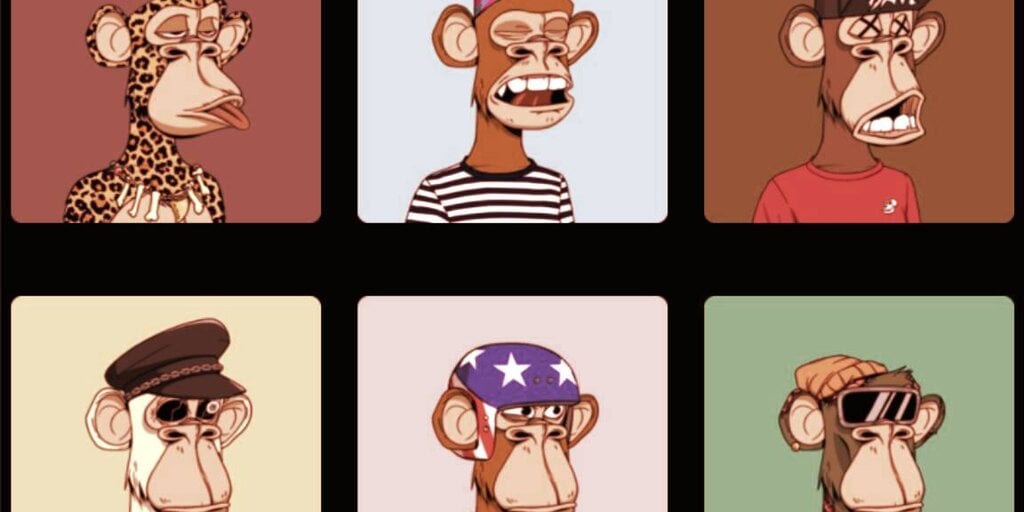
In brief
- Stacks founder Muneeb Ali appeared on the latest episode of Decrypt’s gm podcast.
- He spoke about the NFT market and why some people are vocally opposed to them.
With the NFT market now thriving after last year’s boom, it’s not difficult to find vocal skeptics and cynics on social media. Just click any NFT-related tweet from a brand, celebrity, or video game maker and you’re sure to find a lengthy string of hot takes in the replies.
Pushback to the rising value of and interest in NFT collectibles and artwork has grown widely in recent months. And as Stacks founder and self-professed “Bitcoin centrist” Muneeb Ali told Decrypt on the latest episode of the gm podcast, it’s no surprise: on the surface, some of these top-dollar NFT sales for cartoon apes and other profile pictures appear to be utterly absurd.
“I think it’s one of those things where if you want to cherry-pick examples that really look dumb on paper,” Ali explained, “you’d be like, ‘Hey, this guy bought a monkey for $300,000—a picture of a monkey. And I have saved it on my desktop.’”
NFT proponents would say that it’s not just about the picture attached to the token, however. In the case of a Bored Ape Yacht Club NFT, for example, it’s an in-demand asset that has rapidly gained value since launching just less than a year ago. It’s also something of a status symbol both within the crypto industry and increasingly beyond as celebrities “ape in.”
And, in fact, some NFT advocates encourage people to spread their valuable images far and wide, as their growing use and popularity could drive value back to the tokenized original. But those right-click-savers don’t own the NFT and can’t sell it. Ali said he thinks it’s “pretty brilliant” the way that some NFT users have responded to critics with memes.
But in addition to those potential justifications for the growing value of top NFTs, there’s also an increasing trend towards utility. A Bored Ape NFT, for example, serves as a membership pass into a private community of collectors, which comes with such perks as access to exclusive events, free additional NFTs that can be resold, merchandise drops, and more.
It’s that potential for utility and functionality that Ali sees as the biggest potential for NFTs, and why he believes that tokenized assets will be used for an array of real-world uses in the future. The industry’s sillier or more superficial elements could eventually give way to more serious functions, such as NFTs used for real estate deeds, stock certificates, and other purposes.
“It’s one of those things that it’s kind of easy to make fun of and dismiss as a toy,” said Ali of NFTs. “It’s easy to miss the picture. Imagine Bitcoin, as important as it is—it’s basically a fungible asset, right? And the category of non-fungible assets is much, much bigger, because you can define anything.”
An NFT (or non-fungible token) is effectively a tokenized deed of ownership on a blockchain. While mostly associated with things like digital illustrations, profile pictures, and video game items for now, it works like a traceable receipt in an immutable database. That could give NFTs a wide array of future uses as the technology and market mature.
Ali founded Stacks, a smart contract platform built upon Bitcoin. Essentially, it allows for the creation of decentralized apps, DeFiproducts (the kind that enable peer-to-peer borrowing and trading), and NFTs on a platform that rolls up its transactions and commits them to the Bitcoin blockchain.
Stacks has seen its own NFT market emerge over the past several months. While it’s much smaller than the market of leading NFT platform Ethereum, it has its fans—particularly Bitcoin enthusiasts who want to build atop the same blockchain as the leading cryptocurrency, or buy assets that ultimately share the same base layer.
Ali said that NFT infrastructure simply enables social constructs from the physical world—like private clubs and true asset ownership—to take shape online. And it’s happening via open-source, decentralized technology, rather than under the control of tech giants.
“You can’t make fun of those ideas, because those are human behaviors that you’ve observed in real life,” he told Decrypt. “I think those people that are making fun of things, they can’t connect the dots, clearly. These things are very much ingrained in how our society works already, and this is just unleashing the power of the internet on top of it.”
https://decrypt.co/94333/bitcoin-stacks-muneeb-ali-why-nfts-triggering
The top 5 crypto news stories & features in your inbox each day.
Get Daily Digest for the best of Decrypt. News, original features and more.
This news is republished from another source. You can check the original article here.

Be the first to comment